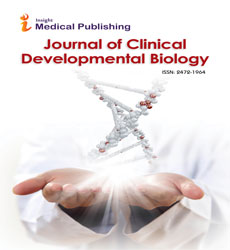Abstract
Mass cytometry identifies loss of co-stimulatory receptor expression as a novel immune signature in follicular lymphoma
White blood cells in the tumor microenvironment of Follicular Lymphoma (FL) are heterogeneous in phenotype and various subsets have contrasting effect on persistent result. Utilizing Mass Cytometry (CyTOF), we distinguished at any rate 12 subsets of CD4+ T cells in FL biopsy examples and found that a few subsets were increasingly common in FL and less pervasive in tonsil tissue. In particular, we found that CD4+ T cells in FL all the more regularly had a memory phenotype, yet that the quantity of credulous T cells, as opposed to memory cells, was related with a good clinical result. To figure out which memory T cell populaces may adversely influence visualization, we concentrated on 6 subsets of memory cells, two populaces that express CD25 and four that express PD-1. In FL, one of the subsets of CD4+ CD25+ T cells had diminished articulation of CD27 and CD28 and this subpopulation was extended when contrasted with controls. So also, in the PD-1 communicating T-cell subsets, two subsets had diminished articulation of CD27 and CD28 when contrasted with controls. While the complete number of PD-1communicating T cells was not related with FL quiet result, we found that expanded quantities of PD-1+ T cells showing diminished CD27 and CD28 articulation was related with less fortunate patient endurance. We found that T cells with diminished CD27 and CD28 articulation would in general lose articulation of other utilitarian T cell markers, neglected to multiply when invigorated and showed up terminally separated. Moreover, we found that CD70+ lymphoma cells assume a significant job in down-directing articulation of CD27 and CD28 on T cells. Taken together, our mass cytometry results have recognized novel CD4+ memory T cell populaces that are ineffectively practical and are related with a second rate endurance in FL.
Author(s):
Zhi-Zhang Yang
Abstract | PDF
Share this

Google scholar citation report
Citations : 22
Journal of Clinical Developmental Biology received 22 citations as per google scholar report
Abstracted/Indexed in
- Google Scholar
- Directory of Research Journal Indexing (DRJI)
- WorldCat
- Publons
- Secret Search Engine Labs
Open Access Journals
- Aquaculture & Veterinary Science
- Chemistry & Chemical Sciences
- Clinical Sciences
- Engineering
- General Science
- Genetics & Molecular Biology
- Health Care & Nursing
- Immunology & Microbiology
- Materials Science
- Mathematics & Physics
- Medical Sciences
- Neurology & Psychiatry
- Oncology & Cancer Science
- Pharmaceutical Sciences
